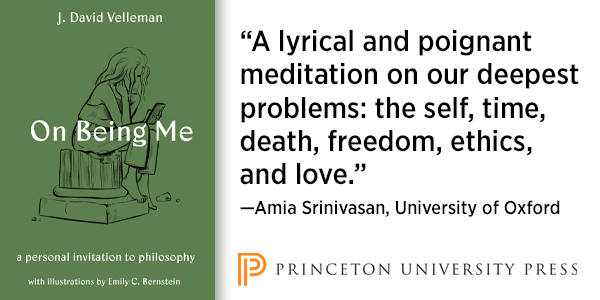Philosophers Among Recent NSF Grant Winners
The National Science Foundation (NSF) may not be the first place people think of when they think about support for philosophical research, but several philosophers are among recent winners of grants from the agency.
Lauren Ross, assistant professor in the Logic and Philosophy of Science Department at the University of California, won an NSF Career Award to support her project, “Causal Explanation in Biology and the Diversity of Causal Concepts”:
In the context of modern biology, the way that scientists describe their research often makes use of a mechanistic framework; biological phenomena are understood as machine-like, having lower-level causal parts that all interact to produce some outcome of interest. As a result, philosophers of science and the general public have come to regard explanations in biology as predominantly mechanistic. However, this view fails to accommodate the diversity of causal concepts in biology that differ from the mechanistic paradigm. For example, biologists appeal to causal concepts that are not well understood with the notion of mechanism including concepts such as pathways, cascades, triggers, and processes. This suggests that causal explanation is more diverse and variegated than the single mechanistic paradigm that is communicated by scientists and supported by philosophers. A view that reduces all biological explanation to mechanisms, obscures the rich and diverse set of causal concepts, reasoning strategies, and experimental techniques that are found in this scientific field. Maintaining our best biological science requires that scientists have an awareness of this diversity, that it is properly characterized in science communication, and that is it appreciated in the philosophy of science literature. This research proposal will use philosophical and historical methods to develop a novel account of biological explanation that accommodates the diversity of causal concepts and causal reasoning in biology. This account will be used to further our understanding of biological explanation and enhance science communication.
Further information here and here.
Nicholas Teh, associate professor of philosophy at the University of Notre Dame, won a Standard Research Grant to support his project, “A Novel Philosophical Analysis of How Modern Gauge Symmetries Can Have Empirical Content”:
This project develops a new philosophy of symmetry. The researchers will analyze how and why physicists’ present conception of the empirical content of symmetries outstrips the naive Galilean paradigm. They will use the results of this analysis to develop a new account of how gauge symmetry (the key symmetry of our best physical theories) can be empirical. They will then connect their notion of empirical content to an important episode in the history of symmetry, the Noether-Klein-Einstein correspondence about energy conservation in General Relativity. Noether and Klein famously charged that the conservation laws derived by Einstein for General Relativity were trivial; they do not bear any physical significance. The researchers will show that Noether and Klein’s concerns were precisely about the failure of the Galilean paradigm, and that Einstein’s rejoinders (though not entirely successful) were important clues towards the project’s novel account of symmetry. The researchers will also apply their notion of empirical content to two important topics in the foundations of physics; they will use it to shed light on the possible of existence of boundary observables in Newtonian gravity, and on the phenomena of the quantum Hall effect.
Further information here.
Melissa Jacquart, currently a post-doc but soon to be an assistant professor of philosophy at the University of Cincinnati, and Angela Potochnik, associate professor of philosophy there and director of the university’s Center for Public Engagement with Science, won a grant to support their workshop, “Philosophy of Science and Public Engagement”:
The workshop will serve to enhance the capacity for socially engaged philosophy of science. That capacity includes conducting philosophical research with broader social relevance, developing the practical implications of philosophical research (such as advancing public policy), and involving philosophy of science in public engagement with broader science endeavors including science education, science communication, and citizen science. The workshop will work towards the overarching goal by fortifying existing bridges with other disciplines relevant to public engagement with science including science communication, science education, and science and technology studies. The first two days of the workshop will consist in morning and early-afternoon lectures from experts on each of the four key areas indicated above, followed by interactive breakout sessions in the late afternoon on each topic. The third day will focus on developing philosophy of science’s potential to contribute to these areas of public engagement with science. Some of the core questions to be addressed are the following. What do philosophers of science have to contribute to this area of public engagement? What are some ways in which that contribution be realized? What resources or discussions in other disciplines already exist? What research do philosophers need to do public engagement? What are potential challenges? The end goal of this workshop is the development of new research networks between philosophers of science and other communities that focus on public engagement with science.
Further information here and here.
You can learn more about NSF awards here.




If NSF “may not be the first place people think of when they think about support for philosophical research”, I’m glad to see this post promoting NSF grants. More people should think about applying for them.
Michigan typically has 1-2 NSF funded grad students at any time; it’s the main source of external funding we get for American philosophy students. The qualifier is because we also get students on SSHRCs and the like, but for Americans, the NSF is one of our best supporters.